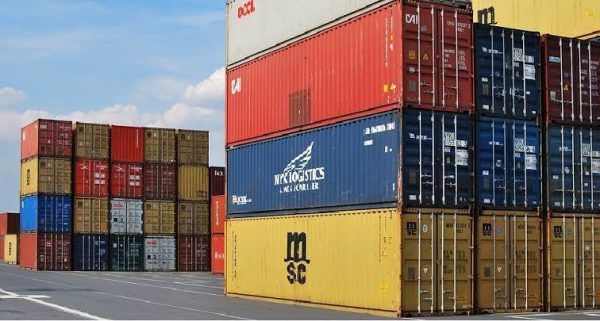How To Export Dried And Smoked Fish

According to a study sponsored by the Food and Agriculture Organisation (FAO) of the United Nations, the quantity of dried and smoked catfish, tilapia and other types of fish exported from West Africa to the United Kingdom was estimated at over 500 tonnes per year; with a retail value of nearly $20 million.
Nigeria alone exports about 5 tonnes of smoked fish per month (via airfreight). Other major exporting countries are Ghana, the Ivory Coast, Senegal and Cameroon.
However, with stricter regulations on food imported into the US and Europe, Africans are finding it difficult to exploit the million-dollar foreign market for smoked and dried fish.
This article reveals the secrets of the trade and how you can take advantage.
A quick introduction to the dried and smoked fish export business in Africa
The huge trade in smoked-dried fish is a consequence of the growing demand by the increasing number of Africans living in the diaspora. The US and Europe remain the major destinations for Africans who venture abroad.
As a result of this transcontinental migration, and a growing appreciation for African flavours and food, the demand for dried and smoked fish appears to be going through the roof.
While it was easy in recent years to send container loads of smoked fish across the seas to the US and Europe, increasing health and bioterrorism concerns have led to very strict rules on imported food and animal produce.
We shall examine the two largest markets for dry and smoked fish, their strict regulations and how you can meet them to make money from these huge markets.
It is important to note that up to 40 percent of smoked fish exported from Africa is detained, returned or destroyed at US and European ports due to simple mistakes such as improper packaging and labeling, inadequate compliance with paperwork, insect infestation and mould growth on the products.
To be successful in this business, you must focus on the details and be careful to comply with ALL the requirements. (photo credit: africa-blogs.mirror.co.uk)
How to export Dried and Smoked fish to the UK and Europe
The new European Union (EU) regulations ban all ‘commercial’ consignments of smoked fish from Africa (and other non-EU countries) from entering the EU region.
This regulation has seriously reduced the volume of smoked fish that can be exported to Europe.
However, ‘personal’ exports are still allowed. Personal exports are small quantities of smoked fish (not more than 20kg in total weight).
This regulation is designed to prevent wholesale export of smoked fish to Europe. ‘Personal export’ includes consignments that are 20kg (or less) and may be carried as hand luggage while travelling.
It can also be sent (by mail or freight) directly to private addresses and named individuals in the EU for personal consumption only. Any exports to registered businesses in the EU or export quantities beyond the 20kg limit will not be allowed and will be seized and/or destroyed at EU ports.
This new policy has essentially killed smoked fish wholesale businesses in Europe who are presently unable to legally import commercial quantities of these products into the EU. This presents a huge opportunity to small African businesses interested in exporting smoked fish to Europe.
Export sizes are now much smaller (limited to 20kg) and can be sold directly to individuals in Europe. Your exports could be posted to target customers via airfreight, and should get to them within 24 hours.
You could sell directly to persons visiting Africa on business or holidays and send it over to them (via airfreight) on a repeat basis while they are back in Europe.
Exporting the minimum 20kg requirement is favourable to a Smallstarter because it significantly reduces the business risk involved.
This reduced quantity has reduced the amount of capital needed to start this business and allows you to sell directly to the consumers at retail prices (which greatly increases the profit potential).
Note: The European Union regulations governing food and beverage imports are constantly changing. To remain updated on the rules, you should make it a habit to check out the Fishery Products Import section of the UK Food Standards Agency.
How to export Dried and Smoked fish to the United States
Unlike Europe, it is still possible to export commercial quantities of smoked and dried fish to the USA, another huge market for the product.
However, following the passing of the Bioterrorism Act of 2002, ‘all facilities that manufacture, process, pack, or store food, beverages, or dietary supplements that may be consumed in the United States by humans or animals are required to be registered with the US Food and Drug Administration (FDA).’
The registration process is likely to include an inspection of the facility where your dried and smoked fish is produced. Companies located outside the United States must choose a US Agent who will be responsible for communicating with the FDA and handle any necessary paperwork.
Having a Certificate of Registration assures customers and suppliers that you have complied with all FDA regulations.
Registrar Corp is a good place to start your journey if you’re interested in supplying to the US market. They have food safety experts trained in FDA inspections who can offer experienced advice and help you get prepared to gain FDA approval.
Because the rules around importing food to the US change from time to time, it’s always a great idea to be on top of the most current information.
During the course of our research for this article, we came across a couple of good resources and give our top three recommendations as follows:
- Express Guidelines for Importing Food to the United States – This is a very detailed resource on the DHL website. It contains a lot of stuff you’ll be interested in if you intend to export food stuff to the US.
- Importing Food for Commercial Sale (Resale) is another great resource on the website of the US Customs and Border Protection. New alerts are issued on the site from time to time.
- Rules, Regulations and Procedures for importing food to the United States – Although this document originated from the Kabul Embassy in Afghanistan, it contains a lot of detail on the subject. It’s a 7-page PDF document and should take you less than 5 minutes to read. However, we noticed a lot of the links on the document are quite dead.
Success tips for aspiring smoked fish exporters…
As you now know, the regulations around food imports to the EU and USA are very strict. You must be ready to comply with all these regulations to avoid seizure or destruction of your products at the destination port.
First, the smoked and dried fish must be well processed and preserved. If the fish is not smoked using the right wood, charcoal or technique, it may end up with high levels of Polycyclic Aromatic Hydrocarbons (PAH).
These substances are considered by the US and European Union to be dangerous to human health and are claimed to cause cancer. Smoked fish consignments containing more than 5 micrograms per kilogram of these substances may not be allowed into any of these countries.
Another common reason why smoked and dried fish consignments are seized is insect infestation and mould growth. If the fish still contain a considerable amount of moisture after drying and smoking, it’s very likely to attract insects and moulds which significantly reduce the quality of the products, and of course, the money you can make from them (that’s if they get to get through the foreign borders).
Other common causes of seizure are incomplete documentation or improper labeling and packaging. You must ensure that you are aware of the required paperwork and work with the custom broker and importer to make sure everything is in place.
How to find buyers for your dried and smoked fish
There are a couple of options for aspiring exporters to find buyers and opportunities in the international markets. All of them are cost-free and provide the information, contacts and networks you need to become successful in the trade.
#1 – Register with an Export Promotion agency in your country
The traditional and most popular place to start your quest to find buyers is to register with an Export Promotion organization in your country. These are usually set up by governments to develop and promote export trade in the country.
Their major objective is to increase the amount of the country’s exports by addressing challenges, obstacles and bottlenecks faced by exporters and producers. They usually provide capital (in the form of grants), make international market information available and help to link exporters to potential international buyers.
The Nigerian Export Promotion Council (NEPC) has an Export Expansion Grant Scheme which provides incentives to local exporters to grow their businesses and foreign exchange earnings. The Kenyan Export Promotion Council also supports Kenyan exports.
#2 – Join a local trade organization
Joining a trade organization in your country can be a very good way to gain an understanding of the dried fish export market and the tricks of the trade. These communities also allow you to network with other exporters, learn from their experiences and even get sales leads.
Often times, several exporters have to work together to fulfill large orders from big overseas clients. Being a part of a trade organization can help you find great deals.
#3 – Register with online marketplaces
Online marketplaces like Alibaba.com and Tradekey.com are some of the most popular platforms to meet buyers and sellers on the international markets. Registration is usually free and you can create a profile as a seller with a good description of your product and some nice pictures too.
Thousands of interested buyers and sellers visit these sites everyday to see what’s on offer. It’s a very convenient and inexpensive way to meet potential customers on a global scale.
#4 – Open an online store
The internet has totally changed the way business is done. Without a physical shop and all the registration fees you need to run a traditional business, opening an online store affords you the opportunity to be available 24 hours a day, everyday! What’s more, it’s much cheaper to run, very flexible and can reach all parts of the world.
Setting up a website is easy. There are lots of free tools and services that can get you up and running in less than 30 minutes. You could write about your product, upload very good sample photos and provide your contact details so interested buyers can reach you.
#5 – Word of mouth
As outdated as it may sound in today’s world, word-of-mouth advertising still works and remains a great way to find potential customers. Social media like Facebook and Twitter make it much easier because you can share information about your products with your friends and contacts.
You never know who knows someone who needs your smoked fish. You spend a lot of time on these media anyway, it may just be time to use them for business benefit.
There are still opportunities in the dry and smoked fish export business in Africa
The size of the export market for smoked and dried fish from Africa is growing fast. Although some of the strict regulations make it difficult for most people to succeed in this business, informed and careful entrepreneurs still make a killing from it. It’s a matter of playing by the rules and looking out for more global export opportunities.
Culled from: www.smallstarter.com







